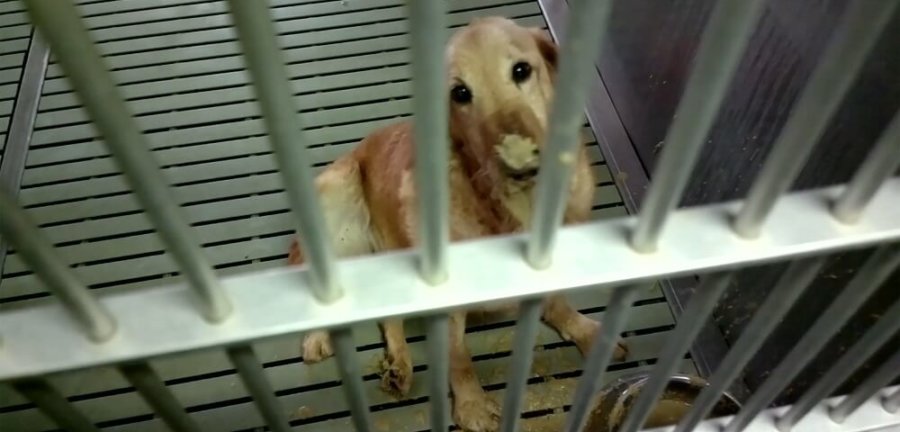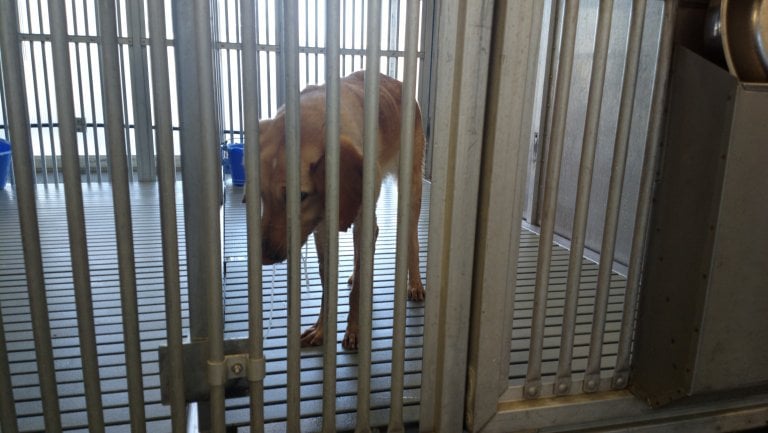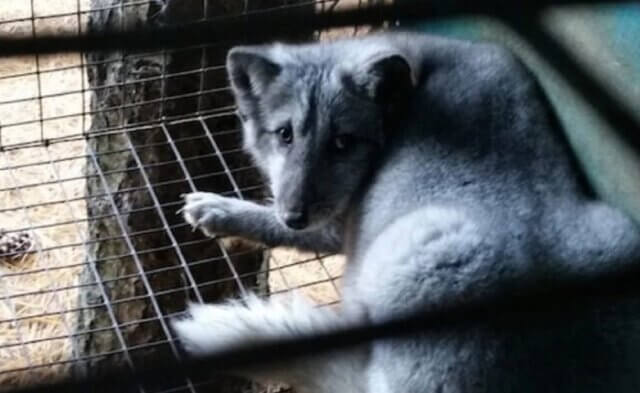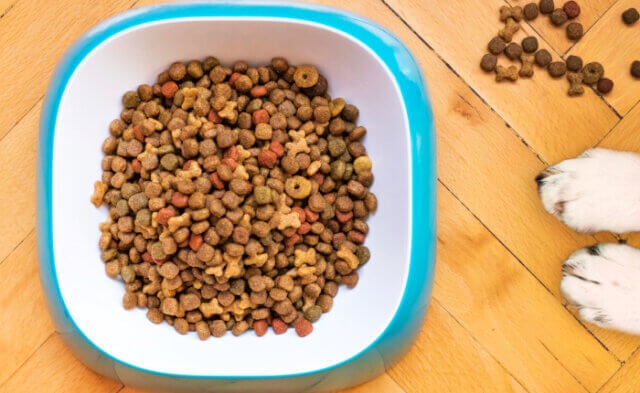By Keith Brown
Peony was a golden retriever with a medium-blond coat and a white patch shaped like a teardrop between her brown eyes.
Unlike most golden retrievers, Peony never felt the soft earth beneath her feet, felt the wind on her face or heard the sounds of birds chattering in trees. She never chased a squirrel or a tennis ball. She endured her short, miserable life confined to a barren, solitary steel cage, first in a university laboratory in North Carolina, then at one in Texas.
During her brief life, experimenters viewed and used her as if she were nothing more than a piece of equipment, barely different from the cage that she was forced to call home.
During this World Week for Animals in Laboratories, April 21–28, a time set aside for compassionate people to demand an end to such treatment, I say: Let every week be devoted to kindness, and end this barbarism now.
Peony was intentionally bred to have a debilitating disease similar to muscular dystrophy as one part of an experiment that has now been going on for 38 years, according to documents obtained through sunshine laws. Her muscle control steadily deteriorated, including her jaw muscles, causing excessive saliva to hang from her mouth in strings eight inches or more, which soaked the fur on her chest and caused hair loss and a skin infection.
She contracted several intestinal infections usually caused by filthy surroundings. She often refused to eat. At the end of her life, she weighed less than 30 pounds—considerably less than the average weight of 55 to 70 pounds for a healthy female golden retriever her age. When experimenters ended her life, she was only 22 months old.
More than 60,000 gentle, trusting dogs like Peony are imprisoned in U.S. laboratories every year. Nearly all will die young. But before they do, they will endure daily loneliness and misery in sunless laboratories, locked in tiny cages without so much as a blanket for bedding and denied the loving human contact they’ve been bred to crave.
For dogs in laboratories, human contact isn’t an affectionate tummy rub—it’s being force-fed pharmaceutical drugs, pesticides and industrial chemicals through thick plastic tubes that are shoved down their throats in toxicity tests; being subjected to invasive experimental surgeries in cardiac experiments; and being injected with viruses and bacteria in deadly infectious disease experiments. While most dogs spring with joy at the sight of their human companions, these dejected dogs must view humans as a source of pain and fear. It is a tragic and cruel betrayal.
Peony’s life came to an early end at the Texas laboratory, but the experiments there continue despite their failure to produce a cure or even a treatment that would reverse the debilitating symptoms for humans suffering with MD.
Few deny that animal experimentation is hideously cruel, but it is less well known that it is also a colossal failure. The federal government has acknowledged that 95 percent of all new drugs that appear safe and effective in animal tests go on to fail or cause harm in human clinical trials, because drugs and chemicals react differently in different species.
There are other, more effective ways to improve human health and accelerate discoveries. For example, scientists using cells from humans with MD recently succeeded in restoring the function of a critical protein—a discovery that may result in treatment for up to 60 percent of those who suffer from Duchenne MD. Harvard scientists recently engineered a human “tongue-on-a-chip” that uses muscle stem cells from MD patients to recreate human muscle and explain, in part, why muscle regeneration fails in these patients.
We should devote our public health research dollars to these promising emerging technologies, not throwing good money after bad as we fund what will surely be the 39th year of failure at the Texas dog lab.
It is time to stop the barbaric and senseless torment of animals in the name of bunk science. Peony’s death is repeated daily in laboratories throughout the country. We can stop it. We must stop it. We will stop it.







